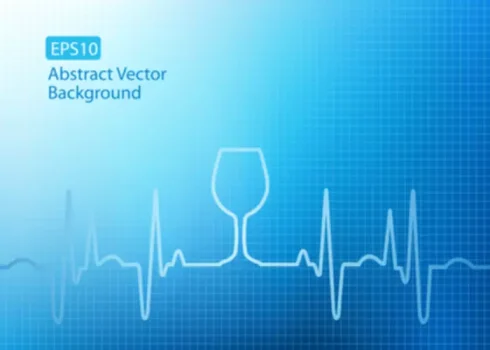
If your doctor prescribes an epinephrine auto-injector, you should carry it with you at all times. If you develop symptoms after drinking alcohol, make an appointment with your doctor. Depending on your symptoms, they might refer you to an allergist for testing and treatment. An allergist is a special type of doctor that focuses on allergic conditions. If drinking alcohol—also known as ethanol—gives you food allergy symptoms such as flushing or hives, you may have an intolerance to alcohol.
Can alcohol intolerance develop suddenly?

Alcohol intolerance is a condition that can cause immediate, uncomfortable reactions after consuming alcohol. Furthermore, excessive alcohol use is a consistent risk factor for blood or brain vessel blockage diseases, such as coronary artery disease and cerebrovascular disease. These conditions can lead to severe complications, including heart attack and stroke. If you do choose to drink, limit how much you drink and stop drinking at the first sign of symptoms. You can treat symptoms, like headache, with certain over-the-counter (OTC) medicines.

Is alcohol intolerance the same as an alcohol allergy?

A severe reaction to nuts is called anaphylaxis and can be life-threatening. Symptoms often start quickly, within an hour of coming into contact with a nut, and sometimes within minutes. If you have a nut allergy, avoiding foods that contain nuts will prevent an allergic reaction. But, if you do come into contact with nuts, and a reaction starts then treating it quickly is important. If you have a severe allergic reaction, if available, give yourself an adrenaline (epinephrine) injection straightaway and call an ambulance.
How to Sober Up From Alcohol, Cocaine, and Other Substances
- However, in some cases, what may seem to be alcohol intolerance could actually be a reaction to a specific substance in the beverage, such as a chemical, preservatives, or grains.
- This article looks at the links between alcohol and sickness and provides an overview of alcohol intolerance, including the signs, when to consult a doctor, and causes.
- Allergies to brewer’s yeast and other yeasts have been well-documented in the medical literature.
- In this article, we’ll explain the difference between alcohol intolerance and allergy, as well as the causes, symptoms and treatment.
- If you are intolerant to alcohol, you will probably see a reaction almost immediately after having a drink.
If in any doubt, or if you are worried about symptoms, seek advice from your doctor. Alcohol intolerance means it’s difficult for your body to break down (metabolize) alcohol. This allows toxins alcohol intolerance symptoms to build up, resulting in facial flushing and other alcohol intolerance symptoms. If people experience symptoms after drinking alcohol, they should speak with a doctor for further advice.
- However, understanding and adjusting lifestyle factors can also play a significant role in managing the condition.
- Without enough ALDH2, toxic byproducts like acetaldehyde accumulate in the body, leading to various adverse reactions.
- There are several ways for a doctor to diagnose an alcohol allergy or intolerance, including the approaches below.
- Diagnosing alcohol intolerance primarily involves a consultation with your healthcare provider, who will inquire about any adverse reactions you experience following alcohol consumption.
- While organic wines cannot add sulfites to their products by law, some contain enough natural sulfites to trigger a reaction in sensitive people.
When to see a doctor
Can you suddenly develop an alcohol allergy?
Tips for Coping With Alcohol Relapse Triggers
- Alcohol intolerance and alcohol allergy may share certain symptoms, but they are two different conditions.
- Additionally, lifestyle changes, such as decreased alcohol consumption or periods of abstinence, sometimes leads to increased sensitivity to alcohol when it is reintroduced.
- Reducing intake or stopping drinking may help a person feel more in control of their consumption and avoid experiencing a reaction or symptoms related to their alcohol use.
- While there is no cure for this condition, avoiding alcohol helps you stay symptom-free.
- If you’re unsure whether you have an allergy or intolerance, consult with your healthcare provider.
Can You Mix Trazodone and Alcohol? Plus, 3 More FAQs About This Risky Combination
- Having an alcohol intolerance is a genetic condition that means your body can’t process alcohol easily.
- Some types of sulfites might also trigger an asthmatic attack if you have asthma.
- An alcohol allergy and alcohol intolerance are two different conditions.
- If you and alcohol don’t mix well, consider whether you’ve experienced the following alcohol intolerance symptoms.

